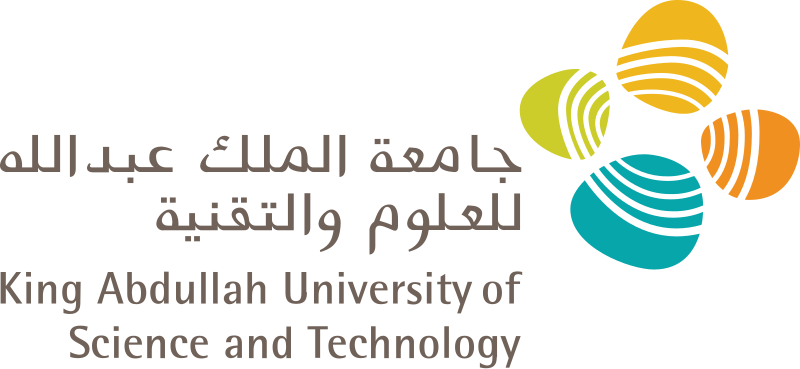
Registration Opens for SAF 2025: International STEAM Azerbaijan Festival Welcomes Global Youth
The International STEAM Azerbaijan Festival (SAF) has officially opened registration for its 2025 edition!

This Monday, approximately 12 million students and 850,000 teachers across France embarked on a new academic year marked by a comprehensive series of reforms. Unveiled by Minister of National Education Elisabeth Borne in her back-to-school press conference on August 27th, these changes aim to significantly reshape education from primary school to high school, addressing concerns over academic decline and modernizing teaching practices. Key initiatives include a major re-emphasis on fundamental skills and more rigorous national exams.
Mathematics is at the forefront of the government's reforms, marking a decisive move away from previous policies that had led to a concerning decline in student proficiency. With the 2019 education reform, the subject was removed as a mandatory subject from the core curriculum for general track students. This meant that after their first year of high school (Seconde), students who did not specifically choose math as a specialty subject received no math lessons. The consequences were stark: the proportion of final-year high school students (Terminale) taking math plummeted from 90% before the reform to a mere 59% afterward, contributing to France's poor international rankings in math, such as those from the OECD's PISA report. Recognizing the critical need to bolster math skills, the Ministry began reversing this trend. Starting with the 2023 school year, a mandatory 1.5-hour weekly mathematics course was reintroduced into the core curriculum for those who have not chosen mathematics as one of their three specialisms in their final two years of high school (Première and Terminale). This ensures a baseline level of mathematical proficiency for all students, regardless of their chosen specialization.
Now, to further solidify math's importance, all high school students (Première) in the general and technological streams will face an early mathematics exam in June 2026. This exam aims to ensure mastery of "fundamental skills and automatic reflexes such as solving an equation, calculating a proportion and a probability, or even interpreting statistical indicators.” The results of the exam will be integrated into students' Parcoursup applications.
Starting this September, primary and secondary school teachers will undergo training to recognize and combat gender bias in the classroom, ensuring girls are actively engaged and questioned more frequently in math and science.
A significant part of this plan involves the creation of "classes with flexible timetables" (classes à horaires aménagés) in science for 4th and 3rd-grade middle school students (Quatrième and Troisième). These pilot programs, launching in seven academies (Amiens, Bordeaux, Créteil, Martinique, Nancy-Metz, Normandy, and Poitiers), will dedicate additional time per week devoted to project-based learning through math, science, or technology workshops led by college teachers, collective STEM projects supervised by professionals from the partner institutions in science, technology, engineering and mathematics, and related outings such as visits to industrial sites, research labs, or universities.
Crucially, these classes will aim for at least 50% female enrollment, often in partnership with higher education and research institutions, to foster a stronger appetite for science among girls. The goal is to generalize these classes by the start of the 2026 school year, with one class per department. The long-term objective is to achieve 50% female representation in the mathematics specialty in the final year of high school (Terminale) by 2030, a considerable increase from the current 42%.
A broader effort to reinforce foundational learning is underway across elementary and middle schools. New programs will be implemented from the first year of primary school (CP) up to sixth grade (Sixième), prioritizing reading, writing, and arithmetic. The circular emphasizes writing as an "essential skill" requiring full attention.
To standardize evaluation and ensure students are prepared for middle school, national assessments in both math and French will become mandatory for all students in the fifth grade (CM2). The system of "needs groups" (groupes de besoin) for math and French, which streams students by proficiency level, will continue for students in the 6th and 5th grades (Sixième and Cinquième). However, a previous plan to extend these groups to the 4th and 3rd grades (Quatrième and Troisième) has been canceled, indicating a cautious, phased approach to this organizational change.
The Baccalaureate and Brevet are undergoing significant reforms to increase academic rigor and transparency in grading. By June 2026, the final exams for the Brevet will account for 60% of the overall grade, up from 50%. Additionally, the continuous assessment portion (40%) will now be based on students' actual average grades earned throughout the third year (Troisième), rather than a qualitative, skills-based assessment. Obtaining the Brevet will become a mandatory condition for entry into high school. Students who fail will be directed to a "prepa-lycée" class to catch up.
At the Baccalaureate level, to ensure grades more accurately reflect student levels and reduce pressure, head teachers will now develop an "assessment project" for their school, clearly specifying which assessments will count towards the Baccalaureate and the university application platform (Parcoursup).
At the end of each term, students will receive two report cards: one detailing grades that count towards the Baccalaureate and Parcoursup, and a second with all grades to track overall progress. In addition, the minimum average required to take a Baccalaureate resit exam will be raised from 8 to 9.5 out of 20.
Beyond traditional subjects, the Ministry is embracing technology and addressing digital distractions. Middle and high school students will receive online training in artificial intelligence; it will be mandatory for 8th and 10th-grade students, along with first-year CAP students. Teachers will also be trained to utilize AI as a tool for lesson preparation.
The "digital break" system, where students must leave their cell phones at home or surrender them upon arrival, will be extended to all middle schools. In 2024–2025, 32,000 middle school students tested different methods of setting aside their phones (lockers, pouches, collective boxes), and the results have shown positive impacts on the school climate and student focus.
All sixth-grade students will undergo fitness tests at the start of the year to assess their endurance, muscular strength, and speed, following an experiment that revealed a low percentage of students with satisfactory fitness.
A new "Future" plan will introduce a career education program for all students from cinquième (5ème) to terminale, including four dedicated half-days per year for career exploration, company visits, and forums.
Share

Registration Opens for SAF 2025: International STEAM Azerbaijan Festival Welcomes Global Youth
The International STEAM Azerbaijan Festival (SAF) has officially opened registration for its 2025 edition!

Join the Edu-live Internship Program!
Are you passionate about journalism, education, science, as well as global study and development opportunities? Do you want to be part of a dynamic media platform that brings educational and scientific news and stories to life from around the world?

Young Leaders Union Conference 2025 in Paris (Fully Funded)
Join Global Changemakers in Paris! Fully Funded International Conference for Students, Professionals, and Social Leaders from All Nationalities and Fields

An mRNA cancer vaccine may offer long-term protection
A small clinical trial suggests the treatment could help keep pancreatic cancer from returning

Yer yürəsinin daxili nüvəsində struktur dəyişiklikləri aşkar edilib
bu nəzəriyyənin doğru olmadığı məlum olub. Seismik dalğalar vasitəsilə aparılan tədqiqatda daxili nüvənin səthindəki dəyişikliklərə dair qeyri-adi məlumatlar əldə edilib.

Applying to KAUST - Your Complete Guide for Masters & Ph.D. Programs (Upcoming Admissions)
Admissions Overview & Key Requirements